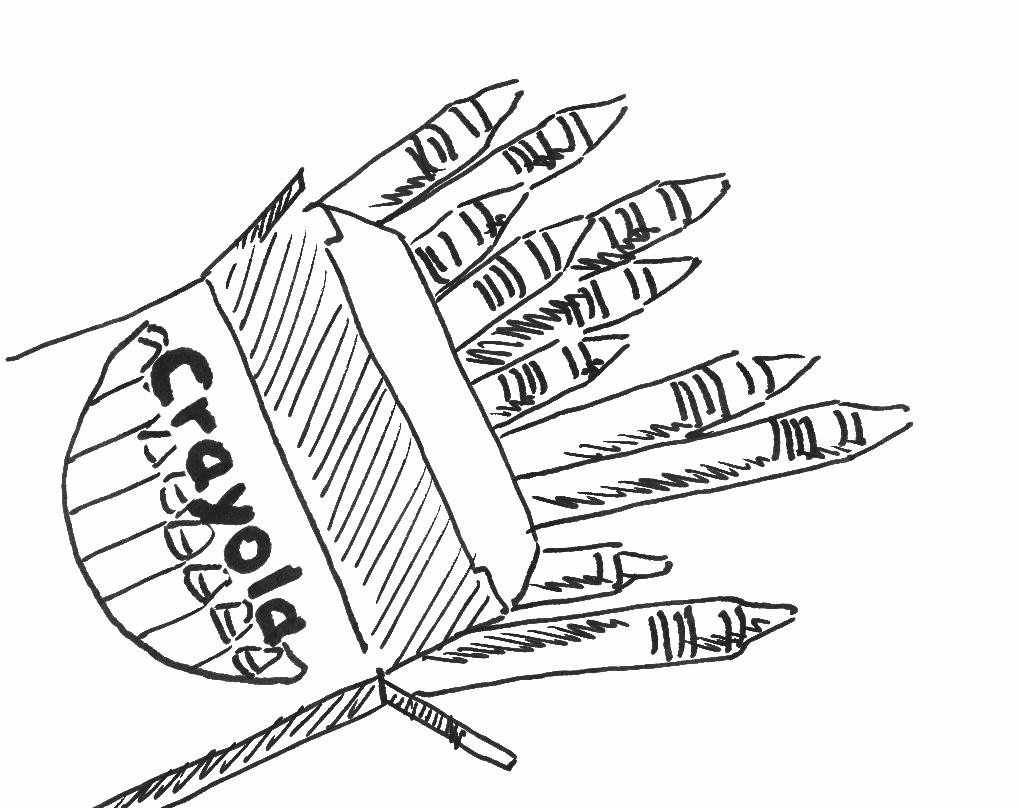A game of chase
September 25, 2025
 This
piece represents the opinion of the author
.
This
piece represents the opinion of the author
.
 Mia Lasic-Ellis
Mia Lasic-EllisI played this game in kindergarten where I would chase the boys around. Not tag—if I caught them, they’d just take off again. I don’t remember exactly why or how this game began.
I distinctly remember chasing this one kid up the stairs, furious. Righteous anger. Most likely, I was agitated because he thought he knew more dinosaur facts than me. Obviously that wasn’t true, so I chased him. It didn’t help that he was smiling and laughing at me.
At some point along my tirade, I tripped on the sidewalk and scraped my nose. He got away from me when I was on the ground.
When were you first aware that boys were, stereotypically, smarter than girls? Often other women tell me they can’t remember. I was five. It was during my dinosaur obsession. Actually, it was likely the cause of it; I knew just as much, if not more, about dinosaurs than any of the boys.
Even if you weren’t aware of it, it likely persisted in your environment. A 2017 study asked five- to seven-year-old children to describe adults as either “really, really nice” or “really, really smart.” While all five-year-olds tended to describe their own gender as “really, really smart,” six- to seven-year old girls began to describe more men, rather than women, as “really, really smart” while young boys continued to favor men. The researchers concluded that cultural context teaches young girls “brilliance equates to males.”
A 2024 meta-analysis of over 100 studies globally confirmed that at age six, across multitudes of races and cultures, “children already believe that boys and men are better at computing and engineering.” A belief which is reinforced for girls as they grow older.
This belief comes from old societal norms: not just beliefs about gender brilliance but related topics of gendered games, hobbies, jobs and household roles. The patriarchy is still very much alive, which I understand can be confusing, as most explicit forms of gender discrimination have been abolished. Yet, the studies don’t show equality. Why?
Since sexist stereotypes are so old, they’ve filtered into every aspect of our lives: media, teachers, parents, peers. Some aren’t subtle: Dora ventures around the neighborhood with her map and backpack, while her cousin Diego swings through the jungle rescuing animals; “feminine” characters are brightly colored, round and accessory focused, while “masculine” characters are dark, sharp-edged and technological; humanoid toys are dolls for young girls and action figures for young boys.
More often than not, they’re covert. The adults who shape children’s formative years are also victims of implicit and explicit sexism. A teacher’s bias of a child’s gender will change their expectations, which can then cause the child to act into those expectations (this is a well-researched phenomena called a self-fulfilling prophecy). Parents can do the same; a parent’s understanding of their child’s ability can change how the child perceives their own abilities.
Peers can also play a role, as they did for me. Playing with other girls on the playground, my options were limited: family, hide-and-seek or M.A.S.H. (I have no idea how it’s played, but apparently it predicts how big your house will be). Simultaneously, the boys played tackle football, freeze tag and basketball. Play the games expected of your gender or face social isolation.
And naturally, there were academics too. We’d have these science, technology, engineering, arts and math fairs in elementary school and they’d often advertise the phrase, “girls are as good as boys at math” or something to that extent. That qualifier, “as good as,” implies that boys have some raw ability girls don’t. Being the competitive and argumentative little girl I was, I challenged that notion. I would race the boys in my class to finish the math worksheet first, aim for the highest reading level and finish my mad minute with 20 seconds to spare.
No matter how passionately I was fighting the stereotype, I was still operating under it. I felt unique for liking math and being a girl rather than understanding that liking math is not a gendered trait. I wasn’t racing neck and neck with my peers; I was desperately chasing after the idea of masculine intelligence. I fought to prove I was good enough to be equal, to have a chance to run the race, despite my gender.
And as it turns out, my childhood game was one hell of an allegory for the rest of my life.

Comments
Before submitting a comment, please review our comment policy. Some key points from the policy: